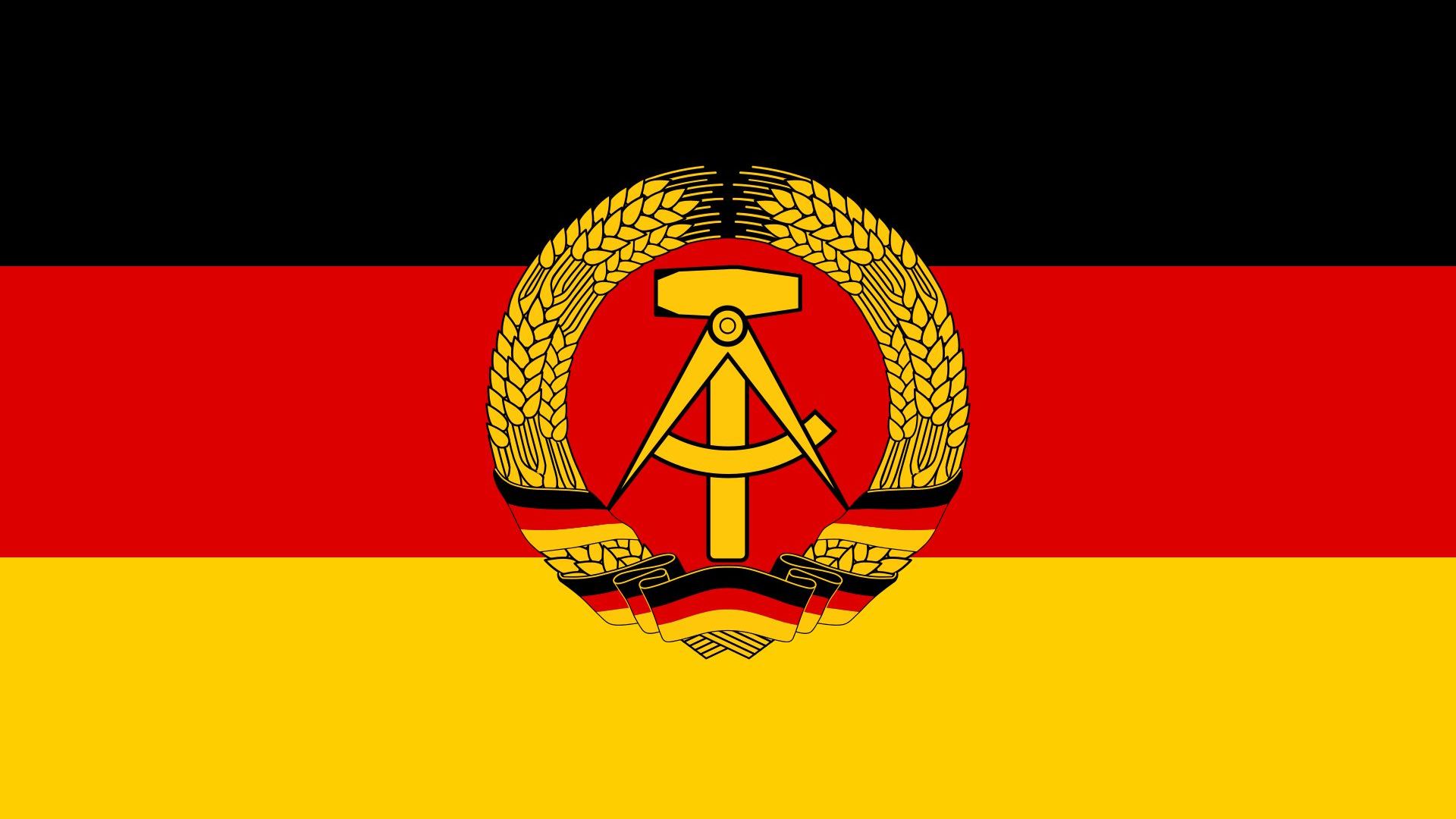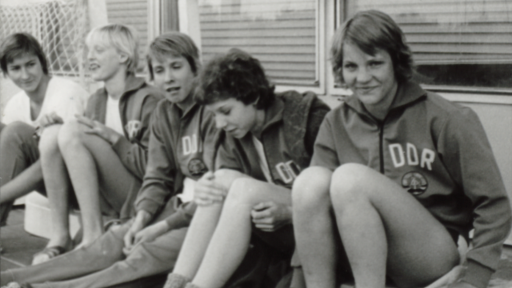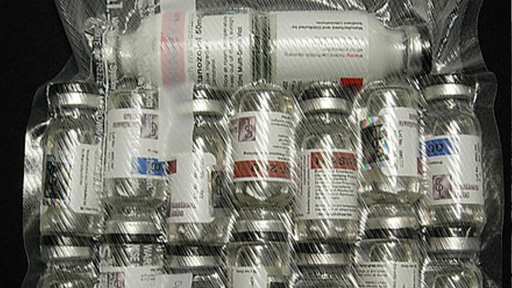Glimpses behind the Communists’ Iron Wall suggested a sporting revolution. Shows like these were carefully choreographed to build support for the socialist state, and distract the East Germans from the economic boom on the other side of the wall. Along with the ongoing space race and the arms race during the Cold War, sports competitions were important to the international reputation for members of the Eastern Block. The timeline below traces Soviet influence in the international sporting arena.
1952 Summer Olympics – Helsinki, Finland
- The Soviet Union competes in its first Summer Olympic Games. Concerned that Cold War rivalries would lead to violence, East Bloc athletes are housed in a separate Olympic village from their western competitors. Video of the opening ceremonies below:
- The German Democratic Republic (East Germany), formed three years earlier in Soviet-occupied Germany, is denied its request to compete. Between 1956 and 1964, East and West Germany are required to pool their athletes and compete under the same banner.
1956 Winter Olympics – Cortina D’Ampezzo, Italy
- The Soviets make a commanding Winter Games debut by collecting more medals than any other nation. The Soviet ice hockey team dethrones the Canadians and foreshadows the dominance it will enjoy between 1964 and 1992.
- Meanwhile, the Americans emerge as a figure skating power when Tenley Albright and Hayes Alan Jenkins take gold medals in the men’s and women’s competitions. Video below:
1956 Summer Olympics – Melbourne, Australia
- The People’s Republic of China becomes the first nation to boycott the Olympic Games, objecting to the participation of Taiwan under the name “Formosa.”
- The Netherlands, Spain, and Switzerland also boycott the games in response to the Soviet invasion of Hungary.
- With tension between the Soviets and Hungarians high, fistfights erupt during a water polo match between the two nations. One player leaves the pool bloodied. The incident earns the nickname, “Blood in the Water.” Video below:
- An Australian named John Ian Wing suggests that, during the closing ceremony, instead of entering with their national teams, athletes ought to enter as a large group representing global unity, a tradition that continues today.
1966 European Track and Field Championships – Budapest, Hungary
- Rumors circulate that top athletes from the Soviet Union and Eastern Europe are actually men disguised as women. In response, competition officials launch “sex tests” to verify that no men attempt to compete in women’s competitions.
1968 Summer Olympics – Mexico City, Mexico
- East Germany competes under its own banner for the first time.

1972 Summer Olympics – Munich, Germany
- The Munich games will be forever remembered for the murder of 11 Israeli athletes and one policeman, but sporting controversy occurred too. During a US – Soviet basketball match, confusion about whether a time-out had been called between free throws causes officials to add 3 seconds to the end of the game. The US leads by a point, but the added time allows Soviet Alexander Belov to catch a cross-court pass and drain the winning lay-up. Video below:
- East Germany becomes an elite sporting nation, collecting 66 medals – only the Soviets and the Americans win more at 99 and 94 respectively – putting the GDR ahead of host nation and bitter rival, West Germany.
1973 World Aquatics Championships – Belgrade, Yugoslavia
- The East German doping program is put to the test; GDR women win 10 of 14 gold medals, setting 8 world records. East German officials set their sights on the 1976 Summer Olympics in Montreal.
1976 Summer Olympics – Montreal, Canada
- Now at full throttle, the East German doping program helps the small nation of 17 million win 90 Olympic medals, including 11 of the 13 possible gold medals for women’s aquatic events. Once again, only the Superpowers – the Soviets and Americans – collect more.
1980 Winter Olympics – Lake Placid, New York
- “Do you believe in miracles?” For the American fans who watch a ragtag team of amateur and collegiate-level hockey players topple the invincible Soviet juggernaut – a team that had crushed the NHL All Stars earlier that year – the answer is, “Yes!” The Americans go on to win the gold medal. Sports Illustrated later names the “Miracle on Ice” the greatest sporting moment of the 20th Century. Video below:
1980 Summer Olympics – Moscow, USSR
- After the Soviet Union invades Afghanistan, the Carter administration exerts tremendous pressure on the US Olympic Committee’s House of Delegates to vote for an Olympic boycott. The vote to boycott passes by more than 2 to 1, and the United States, along with 64 of its allies – including Canada – do not attend the games. It is the largest boycott in Olympic history.
1984 Summer Olympics – Los Angeles, USA
- The Soviet Union and 14 of its East Bloc allies refuse to compete, citing safety concerns for its athletes. Most agree the Soviets stage the boycott in retaliation for the US-led boycott of the Moscow games four years earlier.
- The Los Angeles games were also notable for being the first privately funded Olympics, earning a profit of $250 million – perhaps a more appropriate reason for the Communist boycott than unfounded safety concerns.
1988 Summer Olympics – Seoul, South Korea
- After South Korea denies North Korea’s bid to be a joint Olympic host, the North withdraws its athletes from all competitions.
- Eight years after the USA’s impossible victory over the Soviet hockey machine, the Empire strikes back, defeating the traditionally dominant American basketball team, 82-76. After the games, the International Amateur Basketball Federation voted to allow NBA players to compete in the Olympics, and during the next Olympic cycle, the Dream Team was born. Video below:
1992 Summer Olympics – Barcelona, Spain
- With the Cold War over, the former Soviet Union competes as the “Unified Team,” although its competition winners accept their medals with the flags and anthems of their home countries.



